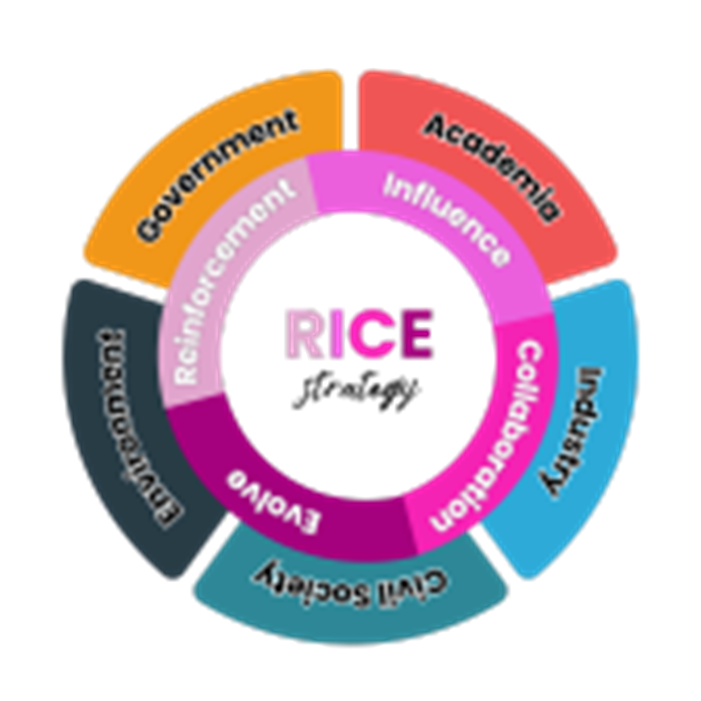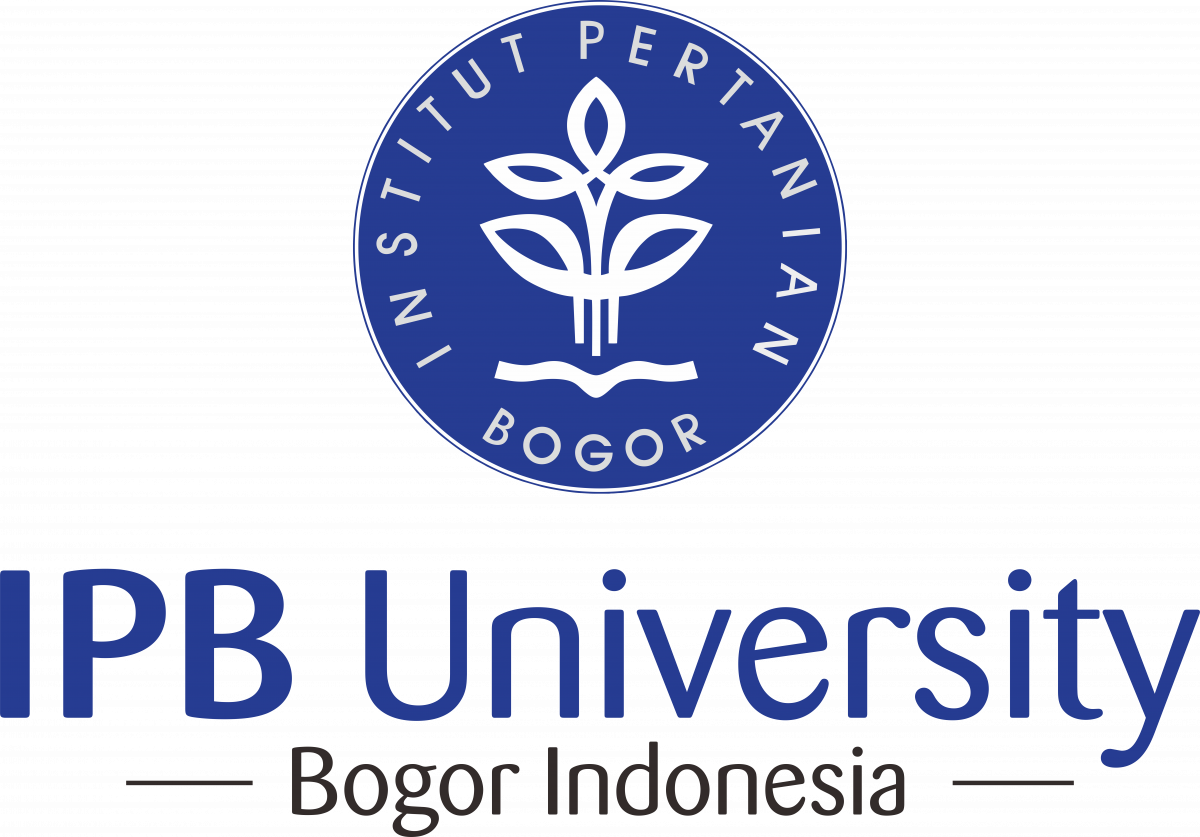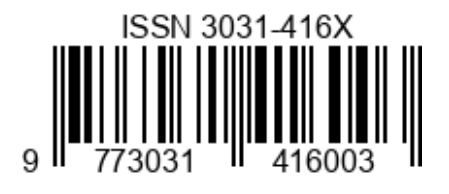Rice strategy: Improving sustainable halal agri-food system through green marketing and shifting consumer behavior with a quintuple helix approach
Abstract
This study aimed to examine the role of RICE strategy (Reinforcement, Influence, Collaboration, and Evolution) in enhancing the sustainability of halal agri-food systems through green marketing and shifting consumer behavior. The significance of halal certification and the growing demand for sustainable food products was examined in the context of Indonesia predominantly Muslim population. The methodology combined a literature review and case study analysis to explore the contributions of various stakeholders including government, academia, industry, civil society, and the environment toward improving halal food production systems. Technological integration, including blockchain, IoT, Lean Knowledge Management (LKM), and digital technologies, were examined as methods for optimizing halal food supply chains and ensuring sustainability. The results showed that key challenges in implementing green marketing, include supply chain inefficiencies, lack of infrastructure, and limited adoption of eco-friendly technologies by MSMEs. In conclusion, this study emphasized the importance of a collaborative approach to overcome obstacles and enhance the global competitiveness of Indonesia halal food industry, while also promoting environmental responsibility and consumer awareness.
References
Atmaja NPCD, Utami NMS. Faktor-faktor yang mempengaruhi green consumer dalam membeli produk organik. Prosising. 2017:127-145.
Bahn RA, Yehya AAK, Zurayk R. Digitalization for sustainable agri-food systems: Potential, status, and risks for the MENA region. Sustainability. 2021;13(6):3223. https://doi.org/10.3390/su13063223
Bigliardi B, Bottani E, Filippelli S. A study on IoT application in the food industry using keywords analysis. Procedia Computer Science. 2022;200:1826-1835. https://doi.org/10.1016/j.procs.2022.01.383
Carayannis EG, Barth TD, Campbell DF. The quintuple helix innovation model: Global warming as a challenge and driver for innovation. Journal of Innovation and Entrepreneurship. 2012;1:1-12. https://doi.org/10.1186/2192-5372-1-1
Diniaty D, Fauzi AM, Sunarti TC, Raharja S, Helmi F. Determination of superior commodities for the development of small and medium industries in Kampar Regency. Journal of Applied Engineering and Technological Science. 2024;5(2):995-1010. https://doi.org/10.37385/jaets.v5i2.4727
Haleem A, Khan MI, Khan S, Jami AR. Research status in Halal: A review and bibliometric analysis. Modern Supply Chain Research and Applications. 2020;2(1):23-41. https://doi.org/10.1108/MSCRA-06-2019-0014
Hayes A. Blockchain. Investopedia. 2024. https://www.investopedia.com/terms/b/blockchain.asp.
Krisna R, Yusuf M, Putra E. Analysis of halal ecosystem and halal literacy on the development of Islamic economic halal regulation. In: Proceeding of The International Conference on Business and Economics. 2023;1(1):318-336. https://doi.org/10.56444/icbeuntagsmg.v1i1.664
Kristian AD. Pengertian, prinsip, dan manfaat lean management. PriedS. 2024. https://www.prieds.com/post/pengertian-prinsip-dan-manfaat-lean-managemet.
Kurniawan M, Suparno S, Vanany I. Implementation of blockchain technology and the Internet of Things in halal supply chain traceability and food safety: A systematic literature review. Proceeding International Conference of Technology on Community and Environmental Development. 2023. https://doi.org/10.18196/ictced.v1i2.75
Manzouri M, Ab-Rahman MN, Zain CRCM, Jamsari EA. Increasing production and eliminating waste through lean tools and techniques for halal food companies. Sustainability. 2014;6(12):9179-9204. https://doi.org/10.3390/su6129179
Muhamed AN, Ramli NM, Aziz S, Yaakob N, Ismail MH. Integrating halal industry with Islamic funding: Where are we now? In: International Convention on Islamic Management. Kuala Lumpur: Academy of Islamic Studies, University of Malaya. 2015.
Prayuti, Yuyut. Muslim food consumer protection through the regulation of halal labels in Indonesia. Jurnal IUS Kajian Hukum dan Keadilan. 2020;8(1):17. https://doi.org/10.29303/ius.v8i1.716
Rahman NAA, Mahroof K, Hassan A. Technologies and trends in halal industry. New York: Taylor & Francis Group. 2023.
Romadhona S. Kenali green marketing, strategi pemasaran yang diminati gen Z. Umsida.ac.id. 2024. https://umsida.ac.id/kenali-green-marketing-strategi-yang-diminati-gen-z/.
Santoso L, Rachman A. Digitalising halal certification: The dynamic of regulations and policies concerning halal certification in Indonesia. Supply Chain Management. 2023;11(1):195-202.
Sari RP. IoT: Definition and examples. Cloud Computing Indonesia. 2024. https://www.cloudcomputing.id/pengetahuan-dasar/iot-pengertian-contohnya.
Seth D, Rehman MAA, Shrivastava RL. Green manufacturing drivers and their relationships for small and medium (SME) and large industries. Journal of Cleaner Production. 2018;198:1381-1405. https://doi.org/10.1016/j.jclepro.2018.07.106
Sulaiman A, Othman N, Baharuddin AS, Mokhtar MN, Tabatabaei M. Enhancing halal food industry by utilizing food wastes to produce value-added bioproducts. Procedia-Social and Behavioral Sciences. 2014;121:35-43. https://doi.org/10.1016/j.sbspro.2014.01.1106
Thomas B, Tahir NS. The effect of corporate social responsibility towards consumer buying behaviour: A study among universities students. Journal of International Business, Economics and Entrepreneurship. 2019;4(2):8-8.
Universitas Cakrawala. Teknologi Digital: Pengertian, Jenis, dan Contohnya dalam Kehidupan Sehari-hari. Cakrawala.ac.id. 2023. https://www.cakrawala.ac.id/berita/apa-itu-teknologi-digital.
Utomo BS, Sekaryuni R, Widarjono A, Tohirin A, Sudarsono H. Promoting Islamic financial ecosystem to improve halal industry performance in Indonesia: A demand and supply analysis. Journal of Islamic Marketing. 2021;12(5):992-1011. https://doi.org/10.1108/JIMA-12-2019-0259
Yulia, Lady. Strategi pengembangan industri produk halal. Jurnal Bimas Islam. 2015;8(1):212-162.

Copyright (c) 2025 Dewa Ayu Made Safira Dwiyani, Kally Sanneh, Kevin Murheza, Najwa Azka Khairani, Rifaldy Setiawan Lubis, Noviyan Darmawan

This work is licensed under a Creative Commons Attribution-ShareAlike 4.0 International License.











